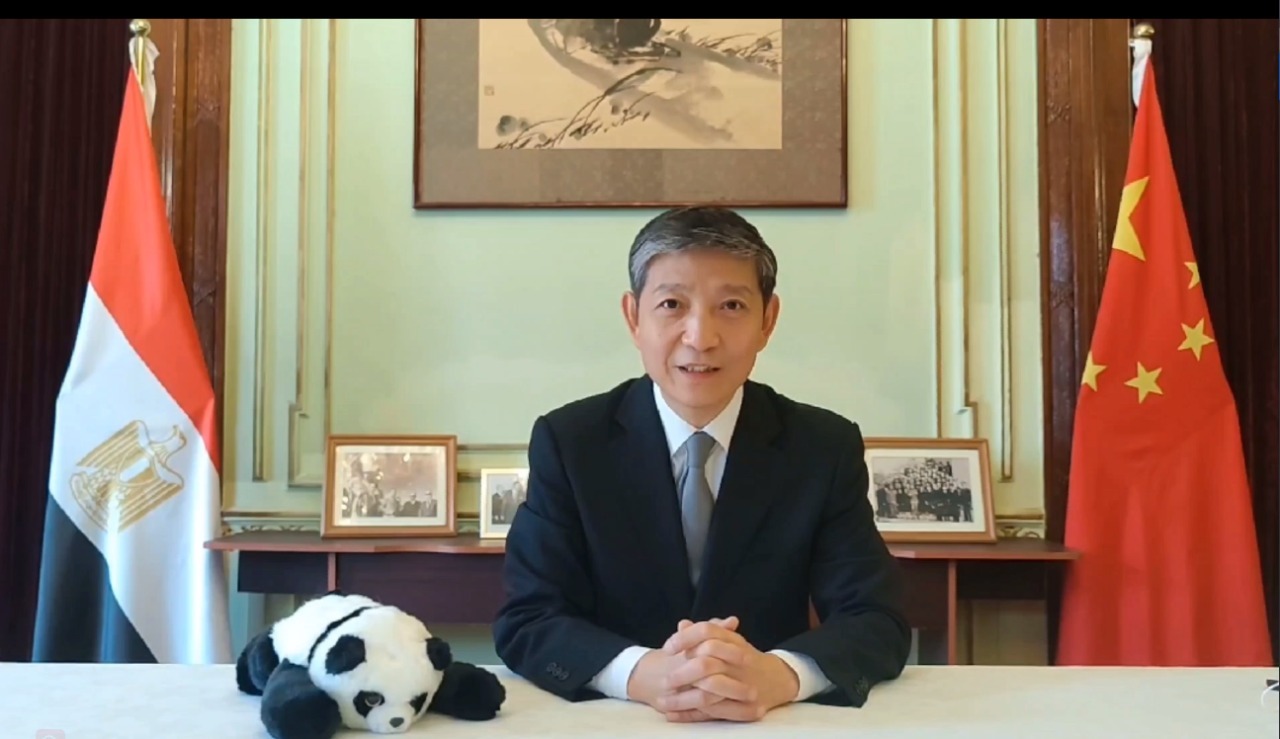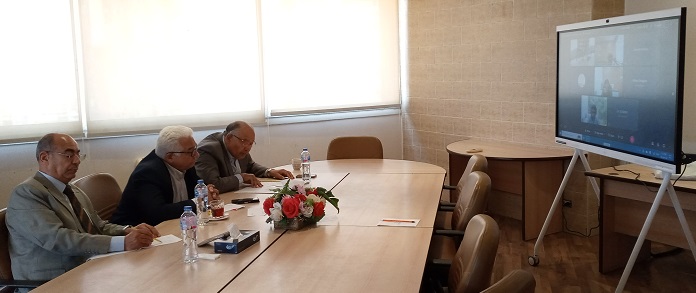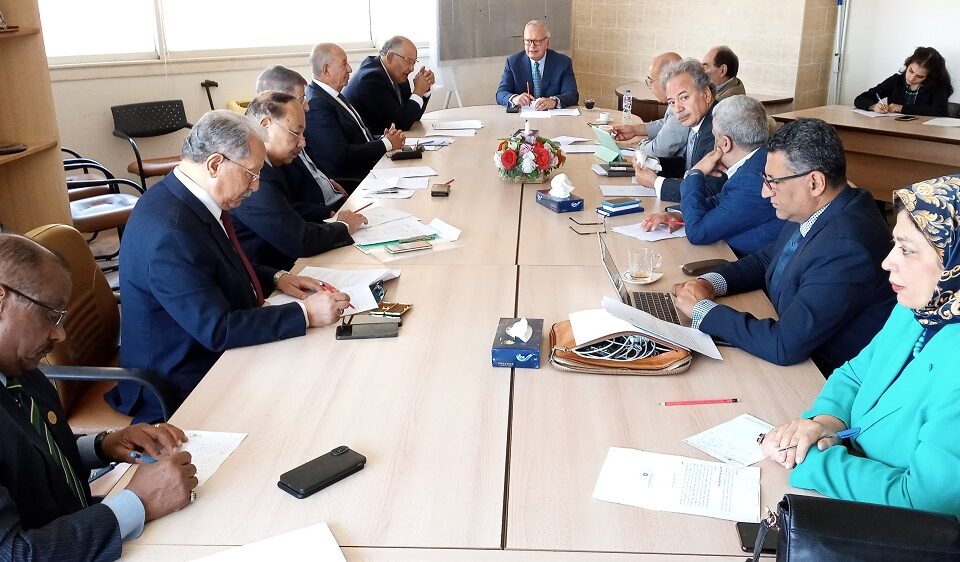The XXIV Yasin International Academic Conference on Economic and Social Development Plenary Session: Africa in a Changing World 2023 Moscow, 6-7 April, 2023
April 6, 2023Launching ceremony of the exchange mechanism between ECFA and the Chinese Embassy in Cairo and holding the first joint event in its framework
April 18, 2023
ECFA organized a seminar on April 11, 2023, during which Ambassador Ali El-Hefny, ECFA Secretary-General, delivered an overview on the “African Peer Review Mechanism” on the occasion of the 20th anniversary of its establishment. A number of ECFA members participated in the meeting, including Ambassadors Mohamed El-Oraby, ECFA Chairman, Ezzat Saad, ECFA Director, Mounir Zahran, Salah Halima, Farouk Mabrouk, Mohamed El-Dorghamy, and Dr. Sadeq Abdel-Aal.
Ambassador El-Hefny indicated that the mechanism was established in March 2003, with the aim of achieving integration and regional cooperation, exchanging experiences and information, and achieving best practices at the level of the African continent, and that its 20th anniversary will be celebrated next May. He added that the mechanism started relatively small and expanded over time, until the number of its members currently reached 43 countries out of a total of 55 member states of the African Union. The Comoros, which currently chairs the Union, was the last country to join the mechanism. The Mechanism has also become one of the Union’s institutions, and has conducted reviews in the field of governance in 26 member states in six priority areas. It also has close cooperation links with other AU institutions, such as the AU Peace and Security Council and the Panel of the Wise.
The mechanism is distinguished by its purely African character, given that all its members and staff are of diverse African nationalities, and there is no foreign representative or expert in it. This in itself is considered a strong impetus on the path towards enhancing joint cooperation and mutual trust between African countries, and is also evidence of the extent of awareness of African identity, and the potentials and capabilities it entails and upon which we can rely and maximize, thus contributing to achieving African common good. The mechanism is also characterized by its voluntary nature, as it exercises its functions only in countries that have voluntarily accepted it, while these member states adhere to the outcomes of the mechanism, voluntarily and morally.
It is worth noting that the reports issued by the mechanism, which are characterized by a great deal of efficiency and quality, are carried out independently and directly, without interference from the authorities of any member state of the mechanism, and this is one of the additional features that characterize the mechanism.






